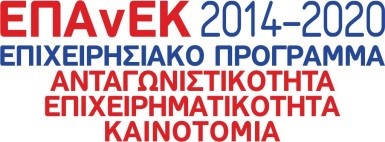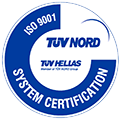GENERAL INFORMATION
The European Molecular Biology Laboratory is one of the leading research institutions in the world and the European flagship institution in the field of health sciences.
It operates across six different sites in Europe, specifically:
- Heidelberg, Germany – Headquarters and main laboratory
- Hinxton, United Kingdom – European Bioinformatics Institute (EMBL – EBI)
- Grenoble, France – Structural biology research and services
- Hamburg, Germany – Structural biology research and services
- Rome, Italy – Epigenetics and neurobiology
- Barcelona, Spain – Tissue biology and disease modelling
The EMBL is an intergovernmental organization focusing on and specializing in health/life sciences basic research: it is funded by public/state resources from more than 20 member states, including two associate members, Argentina and Australia. It is headed by a Director General who is appointed by its governing body, the EMBL Council, which comprises delegates of all member states and associate member states.
The EMBL mission/mandate can be summarized as follows:
- Conducting basic research in Biology
- Training scientists, students and visitors at all levels
- Providing essential services to the scientific communities of member states
- Developing new tools and methodologies
- Actively participating in technology transfer
- Integrating European research on health sciences. Να ολοκληρώνει την ευρωπαϊκή έρευνα στις επιστήμες υγείας
The EMBL research activities put a great emphasis on experimental analysis and on various levels of biological organization and scales, as well as on computational biology, bioinformatics and systems biology.
Related link: https://www.embl.de
EUROPEAN MOLECULAR BIOLOGY ORGANIZATIKON (EMBO) AND EUROPEAN MOLECULAR BIOLOGY CONFERENCE (EMBC)
The European Molecular Biology Organization was founded in 1964 by a group of pioneering molecular biologists, including Nobel laureates. Its aim was “to promote molecular biology in Europe and its neighbouring countries by fostering talents, disseminating new ideas and knowledge among European scientists and by encouraging cross-boundary collaborations”.
The mission was to be achieved through two distinct but related goals:
- Launch of a programme to fund and promote training and fellowships, and
- Establishment of a central laboratory for molecular biology.
Funding and support for the former was sought from European governments and led to the establishment of EMBC in 1969. The latter was launched by the EMBO as a mechanism to finance and provide structure to the MB sector across Europe.
The European Molecular Biology Laboratory (EMBL) was created in 1974 as a “Special Project” of EMBC with the support of a subset of the EMBC Member States.
Today, EMBL is an independent organization and has become one of the top laboratories in the world. The EMBO and EMBL and their intergovernmental funding bodies work closely together and synergize their efforts to advance the molecular life sciences in Europe.
The European Molecular Biology Conference (EMBC) is an intergovernmental organization comprising 30 member states, including most EU member states and several neighbouring countries.
The EMBC provides, through its General Programme, a framework for European cooperation in molecular biology as well as in other areas of research closely related thereto. Molecular biology, being the foundation of all life sciences, has a significant impact on our everyday lives.
The General Programme is fosused on providing training, teaching and research scholarships as well as on the establishment of programmes for courses and laboratories in life sciences.
Financial contributions by member states support the General Programme. The execution of the General Programme is entrusted by the Conference to EMBO. Both the το EMBC and the EMBO are guided by a common commitment to high-quality research at the European level. Common activities are characterized by quality and foster cooperation within the scientific community.
A president and a secretary general lead the Conference. The governments of the member states nominate EMBC Delegates. Typically, each member state appoints one delegate from a relevant ministry and one scientific delegate. The Conference meets once or twice annually. Each member state has one vote.
NATIONAL DELEGATES
Nektarios Tavernarakis (University of Crete , tavernarakis@imbb.forth.gr)
Εleftheria Ζeggini (Wellcome Trust Sanger Institute, eleftheria.zeggini@helmholtz-muenchen.de)
NCP
Ms Panagiota Katsafana (GSRI) pkatsafana@gsrt.gr


















